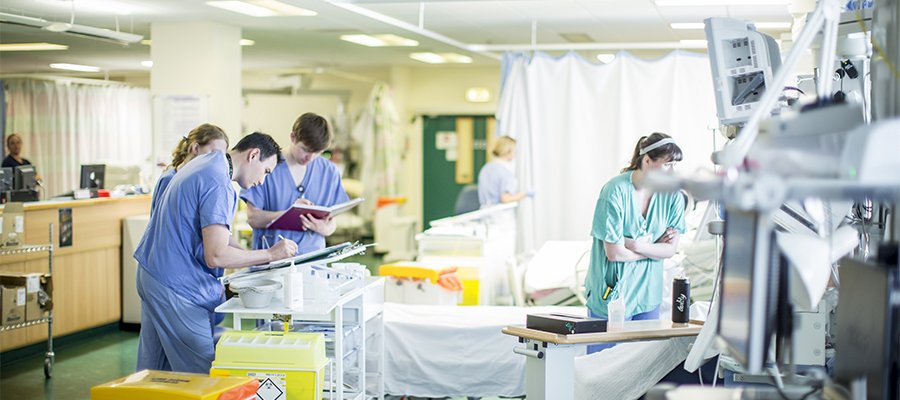The Department of Health recently announced the first batch of 27 medical schools to be accredited by the Special Registration Board, of which six are in the UK, including Oxford University, Cambridge University, Imperial College of Technology, University College London, University of Edinburgh and University of Glasgow. With the Department of Health announcing more approved medical schools in the coming years, Helios expects more Hong Kong students to choose to study medicine in the UK, creating more competition.
Before deciding whether or not to apply and preparing for admission to UKM, parents of students should consider/be aware of the following points.
- Medical School Rankings
根據泰晤士報臨床科學排名2022,香港醫學院排名介乎全球20至52名。事實上,英國也有不少醫學院的相關排名和香港相若,甚至高於香港:
University of Oxford 1st
Imperial College London 3rd
University of Cambridge 4th
University College London 8th
King’s College London 12th
University of Edinburgh 28th
University of Glasgow 49th
University of Manchester 58th
University of Bristol 60th
Queen Mary University of London 62nd
University of Liverpool 65th
University of Birmingham 68th
Of course, ranking is not the only factor to consider. The majority of UK medical schools offer quality programmes, and there are many similarities with the Hong Kong curriculum. Even if you need to take a practice examination after returning to Hong Kong, it will be worry-free if you are well prepared.
- Tuition Fees and Scholarships
It is important to note that the tuition fees for each medical school can vary greatly. For example, the tuition fee for a year of medical studies at the University of Liverpool is about HK$380,000 for five years, while the tuition fee for a year of medical studies at the University of Cambridge, including college fees, is about HK$700,000 for six years. To sum up, the total cost of a medical course in the UK ranges from $1.9 million to $4.2 million. For many families, I believe this is an important consideration.
It is also important to note that many of the scholarships offered by UK universities automatically exclude medicine. Therefore, we recommend that students apply for medical courses as well as private sector or government-run Scholarships, for example, the Hong Kong Excellence Scholarship for universities, the Jardine Matheson Scholarship for some Oxbridge colleges and the Prince Philip Scholarship for Cambridge. In recent years, the Helios team has personally guided many medical students to secure hundreds of thousands or even millions of dollars in scholarships to support their studies.
- Admisstion Test
Students should also note that there are two entrance examinations for the British Medical Association, the BMAT and the UCAT, which are applicable to different universities, and students will need to sit the respective examinations depending on the university they choose.
Parents of students should note that the registration and sitting dates for the two examinations are very different; the UCAT is normally open for registration from mid/late June and sitting dates are from late July to mid/late September, while the BMAT is normally open for registration in September and sitting dates are in early November.
Detailed UCAT results will be available immediately after the examinations are completed, while BMAT results will not be released until the end of November. As the deadline for medical applications in the UK is 15 October, many students choose to take the UCAT in September first and then decide which UK medical schools to choose after the results are available.
Generally speaking, a total score of 2800 or above in the first four parts of the UCAT is ideal; below 2600, it is difficult to gain admission to medical schools. The fifth section, Situational Judgement, is ranked from Band 1 (highest) to Band 5 (lowest), with Band 1 being the most desirable and some medical schools eliminating students with Band 3 or below.

- Interviews
Medical interviews in the UK are mainly conducted in MMI format (except Oxbridge - which is conducted in academic format) and in the past, students were usually required to fly directly to the UK for the interview. However, in the case of the epidemic, medical schools have exceptionally allowed students to choose the online format. As a result, the online interview format has changed to a panel interview, where students meet with one to three interviewers individually.
The MMI or panel interviews do not involve much academic discussion, but mainly focus on medical ethics, scenario-based questions, enthusiasm for medicine and specific interests. However, these interviews can be quite difficult and require near-perfect judgement and on-the-spot skills in order to stand out from the rest of the candidates. Therefore, Helios advises students to set aside a lot of time to practise and prepare for the various interview questions to ensure that they have enough talking points and angles to get to the interview.
- Personal Statement
The personal statement in medicine is arguably the most difficult of all subjects to write well. It can be broadly divided into three parts: enthusiasm for medicine, academic discussion and extra-curricular activities. While academic discussion is the most important part of the general personal statement in the UK, it becomes even more important at the medical level. It is difficult for the average student to access medical-related books during their high school career, so they have to spend time finding books or articles that are relevant to their academic interests, digesting them and researching them to discover their own unique perspectives and opinions, and then refining them before expanding on them in their personal essays. It is important to note that the book or article discussed in your personal statement will most likely be asked about in the interview. Therefore, it is important that you do not discuss concepts and areas that you are unlikely to understand thoroughly in a short period of time.
The enthusiasm for medicine was also the downfall of many of the students' personal narratives. Frankly speaking, most students wrote about their interest in medicine because they had experienced the significance of the work of a doctor due to the illness of a family member or themselves. This is a cliché, but it is not absolutely undesirable. However, if you do so, you must tell your 'story' in a unique and personal way. Of course, it is usually better if the interest in medicine is discovered through other extra-curricular experiences or events and is presented in a short personal narrative.
- School and Subject Selection
Generally speaking, universities requiring BMAT (e.g. Oxbridge, Imperial College, University College London) are more competitive than those requiring UCAT (e.g. King's College London, University of Liverpool). If a student's predicted grades and internal ranking are not outstanding, we recommend that you focus on UCAT and choose all schools that require UCAT. If the student's grades and CV are good, we generally recommend two BMAT schools and two UCAT schools.
In the JUPAS system, you can only take a maximum of four medical courses. Helios generally recommends the BSc Biomedical Sciences, as some universities have an internal transfer mechanism that allows students to transfer to medicine in their second or third year if they meet all the requirements. There are also students who choose to return to medicine after graduation with Graduate Entry Medicine (GEM).
7."Real" entry requirements
In terms of subject requirements, most UK universities will require students to have studied Chemistry and Biology. If you do not have Biology or Chemistry results, although a small number of medical schools will accept it in principle, still, Helios strongly recommends that you try to take international examinations in Biology or Chemistry to make up for the shortfall.
With medical schools being extremely competitive, examination results are also a prime consideration. Although many UK medical schools have entry requirements of 555-5*55 / AAA-A*AA, this is clearly the lowest entry level. In the Helios team's experience, successful students are generally expected to achieve 5*5*5-5*5*5*5* in their elective subjects, plus 5* or more in English Maths, and A*A*A* in their A level.
In terms of the academic system, the success rate of A levels is frankly higher than that of DSE. The reason for this is that A level students usually take their GCSEs in an earlier year, and there is a formal internal examination at Year 12 at the British Prep School to measure students' predicted grades, which is more credible than the DSE predicted grades. For more information, please contact Helios.
- Relevant extra-curricular activities and hands-on experience
Finally, medical-related internship and activity experience is a requirement for university applications. As the global epidemic eases, UK medical schools may no longer be willing to accept applications from students without medical internship experience. Therefore, it is important that students take the time to look out for medical placements, both virtual and physical, and attend as many as possible. If there is time to spare, volunteer activities and science-related competitions can also help with medical school applications.

Medical schools in the UK are the most difficult of all subjects for international students. In addition to time management, professional, accurate and personalised guidance is required to prepare well and increase your chances of success. If you have any further questions or are confused, please feel free to contact the Helios Education Careers Advisory Team to help you secure a place at a leading medical school.



